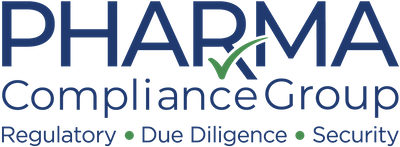Navigating DEA compliance within large hospital systems is far more complex than most administrators realize. Unlike retail pharmacies, hospital pharmacies must coordinate across multiple departments, campuses, and treatment sites—all of which can create compliance blind spots.
Many consulting services overlook how DEA Drug Enforcement Administration regulations apply differently in institutional healthcare settings, where inpatient, outpatient, and compounding operations intersect.
Why DEA Regulations Are Challenging for Hospitals
DEA requirements were originally designed for retail pharmacy environments, not the multifaceted workflows of hospital systems. As a result, hospitals often struggle to interpret and implement these same rules across:
- Inpatient and outpatient care units
- Compounding pharmacies and infusion centers
- Emergency departments and satellite locations
While accurate controlled substance recordkeeping is fundamental, true DEA compliance extends far beyond documentation. Hospitals must ensure secure storage, non-retrievable destruction, proper registration, and oversight across all handling points.
Common DEA Compliance Pitfalls in Hospitals
Many hospitals unknowingly expose themselves to DEA enforcement risk by overlooking critical operational areas, including:
- Methadone administration in emergency departments for patients in opioid treatment programs (OTPs)
- Infusion pharmacy registration and compliant transfer of controlled substances between facilities
- Shipping medications to unregistered or satellite locations without DEA authorization
- Handling patient-owned controlled substances, including secure storage and destruction procedures
- Security of controlled substances entering emergency departments or clinical care areas
- Repackaging and relabeling practices that may unintentionally violate DEA requirements
Each represents a potential compliance gap that could trigger audits, fines, or enforcement actions.
Building a Strong DEA Compliance Framework
A comprehensive hospital DEA compliance program should integrate:
- Policy and procedure development tailored to hospital operations
- Ongoing staff training for pharmacists, nurses, and prescribers
- Proactive auditing and monitoring to detect risks early
- Chain-of-custody documentation for all controlled substances
- Periodic compliance reviews to stay current with DEA updates
By combining these elements, hospitals can maintain accountability and safeguard their DEA registrations.
Contact us for more information solutions@pcgrx.com

